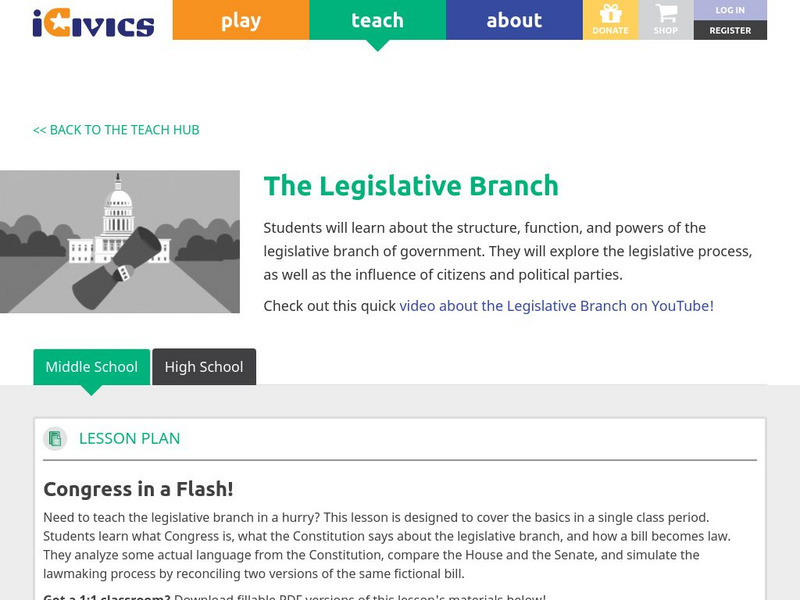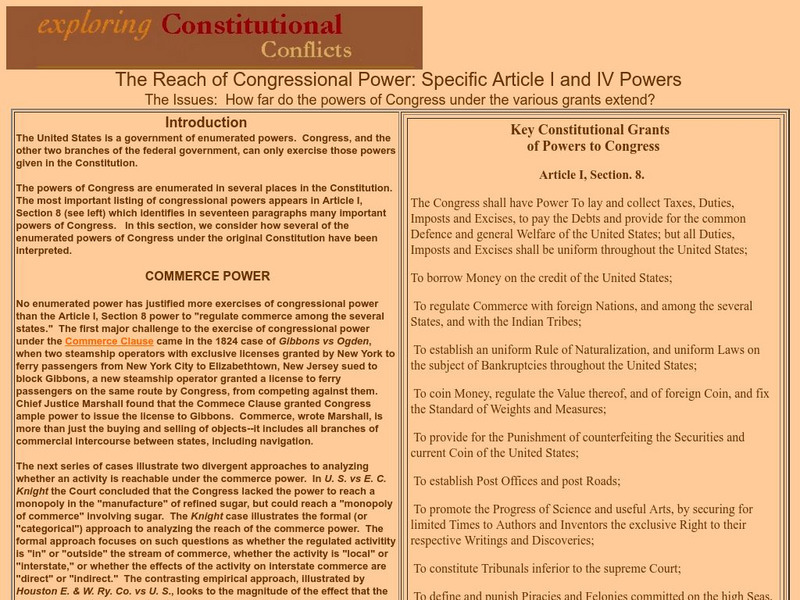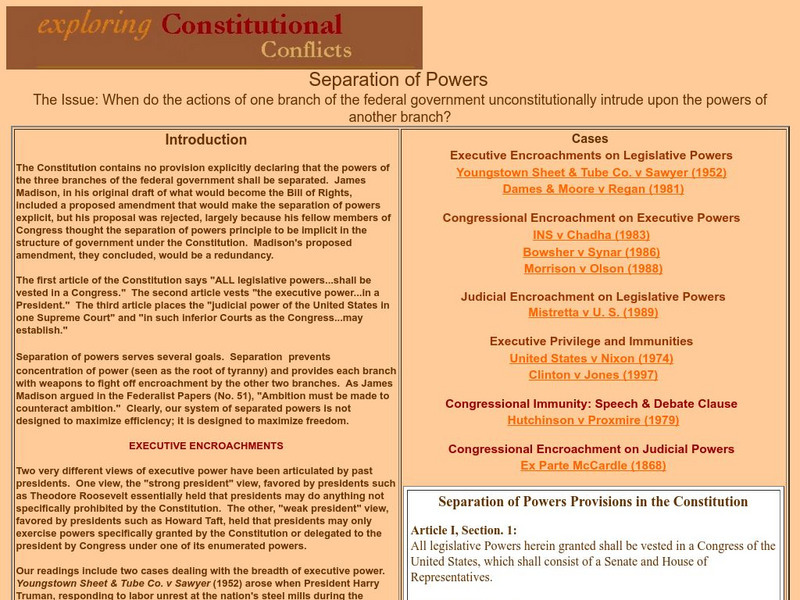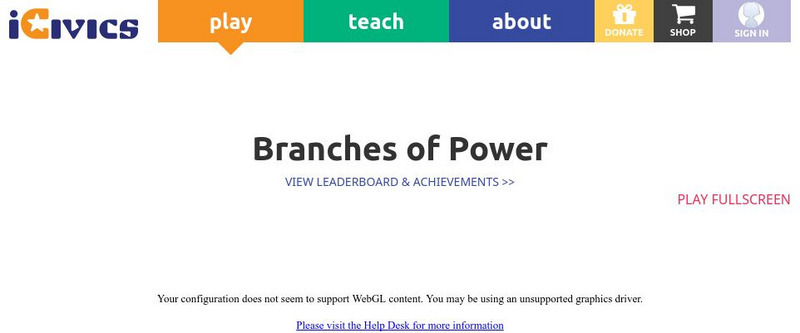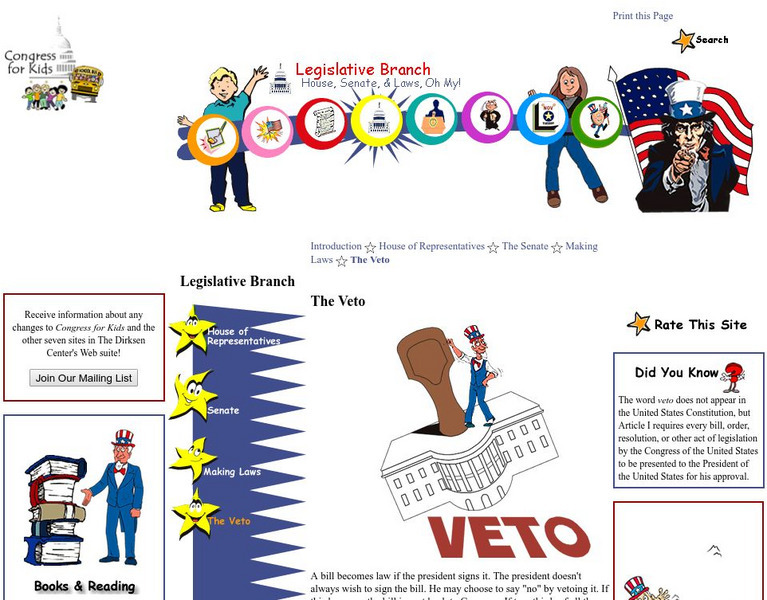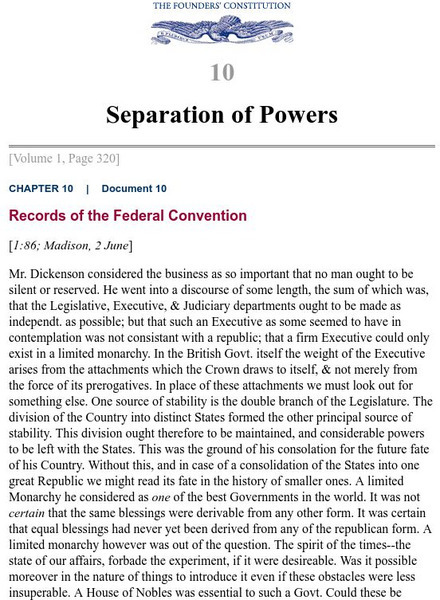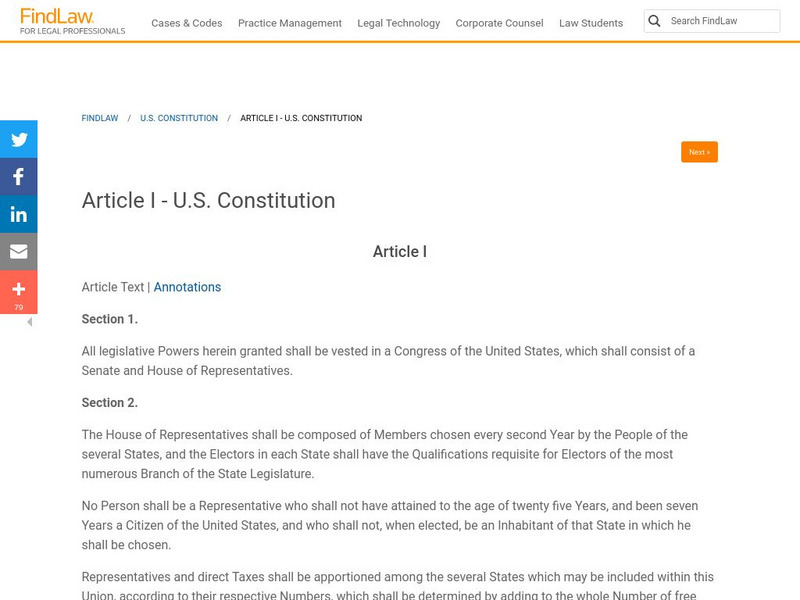US Government Publishing Office
Ben's Guide to u.s. Government: President's Legislative Powers
An easy-to-understand discussion on the actual legislative powers of the president and the veto. Includes related links.
University of Groningen
American History: Outlines: The Legislative Branch: The Reach of Congress
This well-written and well-organized site from The Legislative Branch provides a thorough overview of congressional powers, inherent checks and balances, as well as links to related information.
US Government Publishing Office
Ben's Guide to u.s. Government: Legislative Branch
This site designed for students, clearly describes congressional powers and provides excellent accompanying links.
US National Archives
National Archives: Lesson Plans Congress, the President, and the War Powers
Examine the power of Congress to make war by studying primary source documents from various wars throughout U.S. history. Students will analyze how the balance of authority between the legislative branch and executive branch has changed...
iCivics
I Civics: Legislative Branch
Students will learn about the structure, function, and powers of the legislative branch of government. They will explore the legislative process, as well as the influence of citizens and political parties. Register for a free account to...
Cato Institute
Executive Orders and National Emergencies
The subtitle of this essay is "How Presidents Have Come to 'Run the Country' by Usurping Legislative Power." It discusses how the Constitution defines executive powers in a general way, with few limitations on the power of the President...
PBS
Structure of Congress and the Legislative Process Lesson
This lesson explores the structure of Congress and the legislative process. There is an introduction, a research activity, an assessment, and a role play activity.
University of Missouri
Exploring Constitutional Conflicts: The Reach of Congressional Power
Read about the privileges and powers exercised by Congress from a constitutional law perspective. Includes examples of many cases which have tested the limits of Congressional power in the history of the United States. Many links to...
University of Missouri
Exploring Constitutional Conflicts: Separation of Powers
When do the actions of one branch of the federal government unconstitutionally intrude upon the powers of another branch? This article surveys the history of this question in historic Supreme Court cases.
Library of Congress
Loc: Enactment of a Law
This site is a description of the legislative process of the enactment of a law. It begins with the various origins, steps, procedures and schedules in the making of a law. It contains a description of terms.
PBS
Pbs Learning Media: The Powers of Government
Students learn how the three branches of the United States government work together and the powers that the Constitution assigns to each branch-legislative, executive, and judicial.
US National Archives
Docs Teach: Separation of Powers or Shared Powers
In this activity, learners will analyze documents that illustrate the relationship between the legislative, executive and judicial branches. Using the scale in Weighing the Evidence, students will decide whether the United States...
iCivics
I Civics: Branches of Power
Do you like running things? Branches of Power allows you to do something that no one else can: control all three branches of government! You'll have the power to write any laws you want about issues you choose. Careful, though, there's a...
A&E Television
History.com: How John Marshall Expanded the Power of the Supreme Court
When John Marshall was appointed chief justice of the U.S. Supreme Court in 1801, the nation's highest court occupied a lowly position. There was no Supreme Court Building in the newly completed capital, Washington, D.C., so the six...
Other
America's Future: Behind the Headlines: The Constitutional Powers of Congress
A short summary of the powers Congress does and does not have, with an emphasis on the Constitutional basis of each. [Published Jan. 24, 1999]
The Dirksen Congressional Center
Congress for Kids: The Legislative Branch: The Veto
Learn about the President's power to veto a bill, and understand how Congress responds when this happens.
University of Chicago
The Founders' Constitution: Separation of Powers
Federal Convention on the Separation of Powers as recorded during debate at the convention, June 2, 1787.
Thomson Reuters
Find Law: u.s. Constitution: Article I
Complete text of Article I, sections 1-10, of the U.S. Constitution, establishing the Legislative Branch of the Federal government.
iCivics
I Civics: Games: Branches of Power
Interactive and educational game puts players in control of all three branches of government and tests their abilities to turn issues of concern into full-fledged laws.
iCivics
I Civics: Separation of Powers: What's for Lunch?
Students find out how the three branches of government interact with each other and how decisions about laws are made by several parts of the U.S. government.
Indiana University
Center on Congress: Learn About Congress
Learn about the role of the US Congress, how it works, its history, and the principles behind its creation and operation. Wonderful set of resources including FAQs, short articles and video clips, "interactive learning modules" (i.e., a...
Other
Fas: Proposals to Enhance Congressional Oversight
This site is provided for by the Federation of American Scientists. After the Clinton Administration's experiences with Bosnia and Somalia, Congress sought to increase its legislative powers in military involvements and peacekeeping. The...
US Mint
United States Mint: Branches of Power
Save the federal government from Oppressor Sam, and learn about the US Constitution to restore the three branches of government.
Thomson Reuters
Find Law: Annotation 3: Article I
This resource provides the annotation of Article 1 of the Constitution and the powers held by Congress. Focuses are on the implied, enumerated, inherent, and resulting powers of Congress. At the bottom of the page footnotes are provided.


